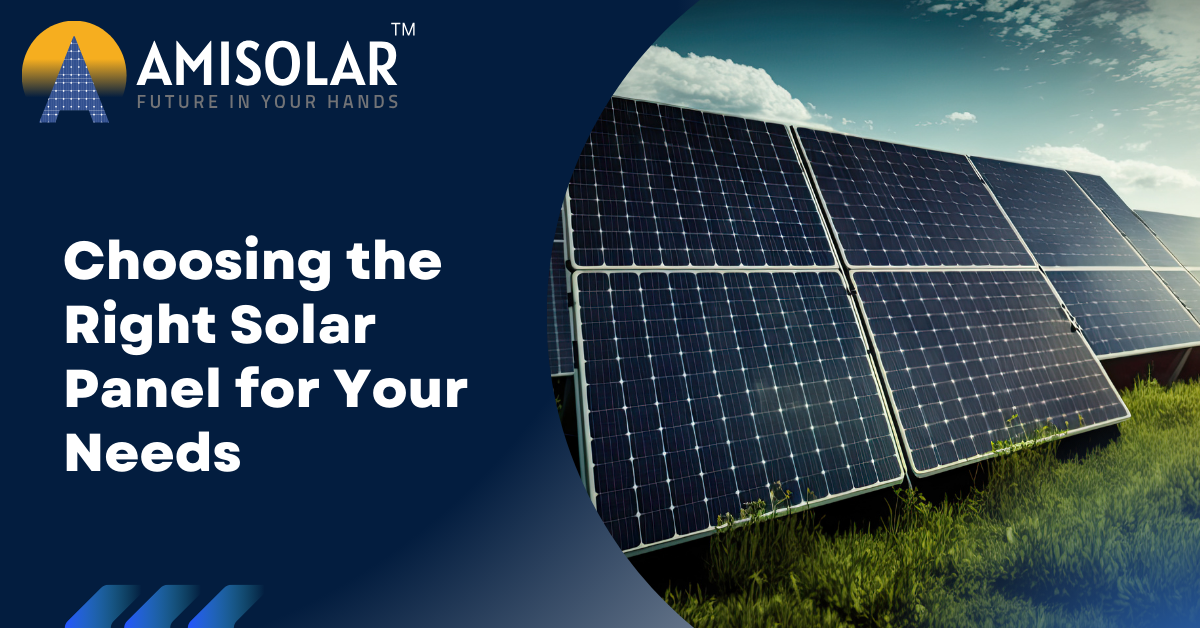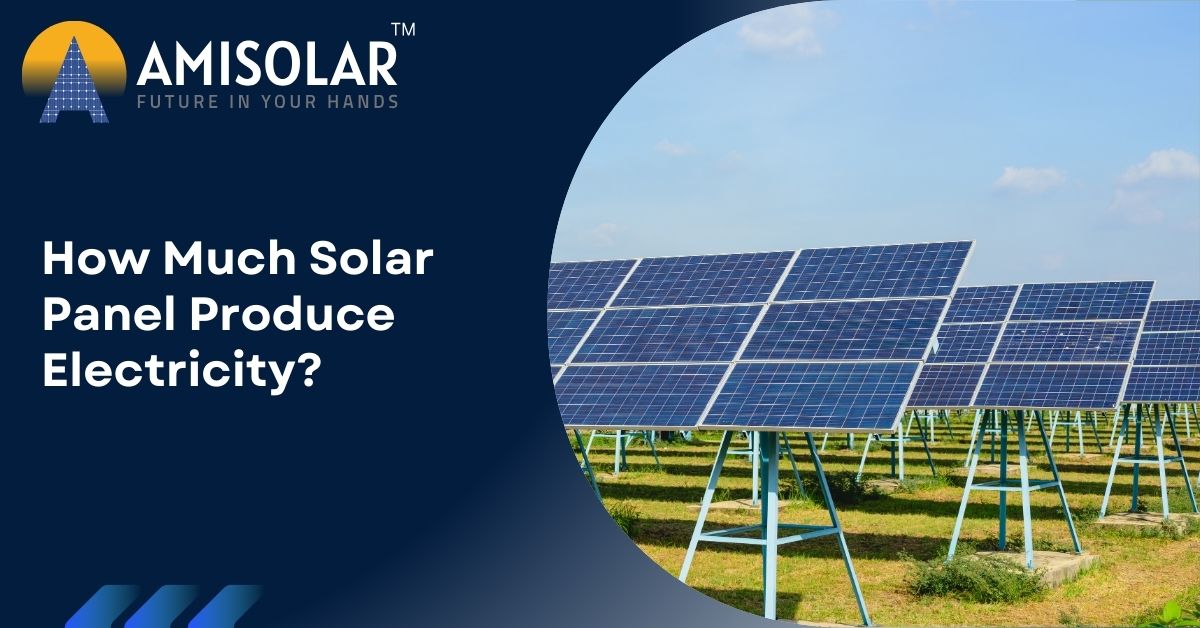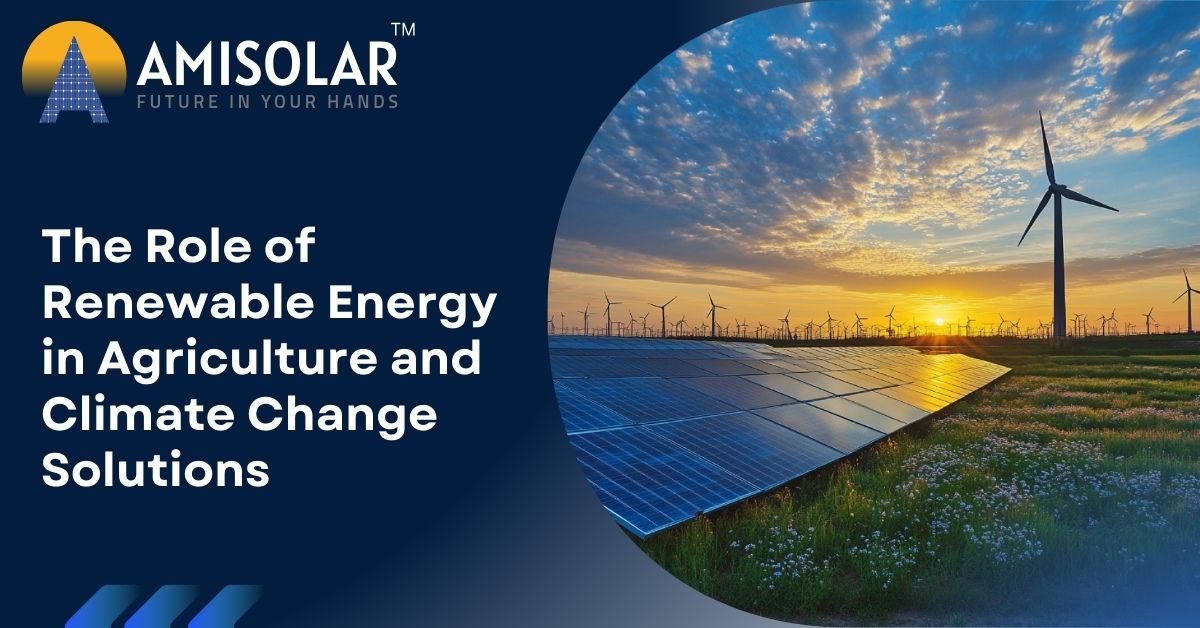As solar energy gains momentum worldwide, more people are turning to solar panels as a…

If you’re Considering Harnessing the Power of the Sun to meet your Energy Needs, you’ve come to the Right Place. In this guide, We’ll Illuminate the Path to Choosing the Right Solar Panel System Tailored to your Specific Requirements.
With the Ever-Growing Demand for Sustainable Energy Solutions, choosing the Right Solar Panel is a Crucial Decision. Whether you’re a Homeowner, Looking to Reduce your Electricity Bills, or a Business Owner aiming to Embrace Clean Energy Practices, Understanding the Nuances of Solar Panel Selection is Paramount.
In this Comprehensive Guide, We’ll Walk you Through the Essential Factors to consider when Choosing Solar Panels. From Deciphering the Differences Between Various Panel Types to Assessing your Energy Consumption Patterns, We’ll Equip you with the Knowledge Needed to make an Informed Decision.
Understanding Different Types of Solar Panel
Choosing the Right Solar Panel Starts with Understanding the Different Types Available. The Three Main Types of Solar Panels are Monocrystalline, Polycrystalline, and thin film, each offering Unique Benefits and Applications.
Monocrystalline Solar Panels
Monocrystalline Panels are known for their High Efficiency and Sleek Appearance. Made from a Single Crystal Structure, these Panels typically offer Better Performance in Low-Light Conditions and have a Longer Lifespan. They are Ideal for Installations with Limited Space where Maximum Efficiency is Required.
Key Features:
- High Efficiency Rates
- Long Lifespan (25+ Years)
- Excellent Performance in Low-Light Conditions
Polycrystalline Solar Panels
Polycrystalline Panels are made from Multiple Silicon Crystals Melted Together. They are Generally More Affordable than Monocrystalline Panels but offer Slightly Lower Efficiency. These Panels are a Great Choice for Larger Installations where Space is not a Constraint, and Budget is a Key Consideration.
Key Features:
- Cost-Effective
- Moderate Efficiency Rates
- Shorter Manufacturing Process, Reducing Environmental Impact
Thin-Film Solar Panels
Thin-Film Solar Panels are made by Depositing Thin Layers of Photovoltaic Material onto a Substrate. These Panels are Lightweight and Flexible and can be Used in a Variety of Applications, including Integration into Building Materials. However, they tend to have lower Efficiency and Shorter Lifespans compared to Crystalline Silicon Panels.
Key Features:
- Lightweight and Flexible
- Lower Efficiency Rates
- Suitable for a Variety of Applications, including Mobile and Portable Uses
Also Read: How much does Solar Panel Installation Cost in 2024?
Assessing Energy Needs
One of the Most Critical Steps in Choosing the Right Solar Panel is Accurately Assessing Your Energy Needs. Understanding How much Energy you consume will help you determine the size and type of solar panel system required to meet your goals effectively.
Calculate Your Energy Consumption
The First Step in Assessing your Energy Needs is to Calculate your Average Energy Consumption. Review your Electricity Bills from the Past Year to Determine your Monthly and Annual Usage in Kilowatt-Hours (kWh). This will give you a Baseline for the Amount of Energy your Solar Panel System needs to Generate.
Key Steps:
- Gather your Electricity Bills for the past 12 Months.
- Note your Monthly kWh Usage.
- Calculate the Total Annual kWh Usage.
- Determine your Average Monthly Energy Consumption.
Consider Future Energy Needs
When Assessing your Energy Needs, consider any Future Changes that might affect your Energy Consumption. For Instance, Adding New Appliances, Expanding your Home, or Increasing your Business Operations can Increase your Energy Requirements. Planning for Future Energy Needs ensures that your Solar Panel System remains adequate Over Time.
Factors to Consider:
- Planned Home or Business Expansions
- Addition of Energy-Intensive Appliances
- Changes in Household or Business Energy Usage Patterns
Evaluate Your Solar Potential
Not all Locations Receive the Same Amount of Sunlight. Evaluate your Property’s Solar Potential by Considering Factors such as Geographic Location, Roof Orientation, and Shading from Trees or Buildings. An Accurate Assessment of your Solar Potential helps determine the Efficiency and Size of the Solar Panel System you Need.
Assessment Points:
- Geographic Location and Climate
- Roof Orientation (South-Facing Roofs are Ideal in the Northern Hemisphere)
- Shading from Nearby Structures or Vegetation
Use an Energy Needs Calculator
Many Online Tools and Calculators can help you Estimate your Energy Needs and the Size of the Solar Panel System Required. These Tools typically Ask for Information about your Energy Consumption, Location, and Roof Characteristics to provide Personalized Recommendations.
Benefits of Using Calculators:
- Provides a Quick Estimate of Energy Needs
- Helps in Planning the Size and Type of Solar Panel System
- Offers Personalized Recommendations Based on your Input
By Thoroughly Assessing your Energy Needs, you can Ensure that the Solar Panel System you Choose will Provide Sufficient Energy, Optimize your Investment, and Contribute to Significant Long-Term Savings.
Also Read: Top 7 Benefits of Solar Panels
Quality and Efficiency
When Selecting Solar Panels, Prioritizing Quality and Efficiency is Paramount. High-quality panels not only Ensure Better Performance but also Offer Long-Term Reliability and Durability, Maximizing your Return on Investment.
Importance of Quality Solar Panels
Quality Solar Panels are built to withstand Harsh Weather Conditions and Provide Consistent Energy Production over their Lifespan. Investing in Quality ensures Reliability, Durability, and Peace of Mind knowing that your Solar Panel System will continue to Perform Optimally for Years to Come.
Key Features of Quality Panels:
- Robust Construction for Durability
- High-Quality Materials for Longevity
- Stringent Manufacturing Standards for Reliability
Understanding Efficiency Ratings
Efficiency is a Crucial Factor when Evaluating Solar Panels. It Refers to the Amount of Sunlight that a Panel can Convert into Electricity. Higher Efficiency Panels produce more Electricity Per Square Meter of Space, making them Ideal for Installations with Limited Roof Space or Where Maximizing Energy Production is Essential.
Types of Efficiency Ratings:
- Conversion Efficiency: The Percentage of Sunlight Converted into Electricity.
- Temperature Coefficient: Measures How Efficiently the Panel performs in High Temperatures.
- Performance Degradation Rate: Indicates How Much the Panel’s Efficiency decreases Over Time.
Choosing High-Efficiency Panels
Opting for High-Efficiency Solar Panels allows you to Generate more Electricity with Fewer Panels, Maximizing Energy Production and Potential Savings. While High-Efficiency Panels may come at a Higher Initial Cost, their Increased Output and Performance can Lead to Greater Long-Term Benefits.
Benefits of High-Efficiency Panels:
- Maximizes Energy Production in Limited Space
- Increases Overall System Performance
- Provides Higher Return on Investment Over Time
Warranty and Reliability
When Investing in Solar Panels, considering the Warranty and Reliability of the Product is Crucial. A Strong Warranty and Reliable Performance ensure Peace of Mind and Protection against Unexpected Issues over the Lifespan of your Solar Panel System.
Importance of Warranty Coverage
A Comprehensive Warranty provides Assurance that your Investment is protected against Manufacturing Defects, Performance Issues, and Premature Failure. Look for Warranties that Cover not only Product Defects but also Guarantee Performance Levels and Ensure Long-Term Reliability.
Key Components of a Strong Warranty:
- Product Defects Coverage
- Performance Guarantee
- Minimum Output Over the Warranty Period
- Warranty Duration (Typically 20-25 Years)
Reliability and Longevity
Reliability is another Critical Aspect to consider when choosing Solar Panels. Panels with a Proven Track Record of Reliability and Longevity are more Likely to Deliver Consistent Performance and Withstand Environmental Factors such as Extreme Temperatures, Humidity, and Hailstorms.
Factors Contributing to Reliability:
- Quality of Materials and Construction
- Manufacturing Process and Standards
- Testing and Certification
Also Read: House Solar Panel System Installation Cost in India
Cost and Budget Considerations
When embarking on your Solar Journey, Budget Considerations are Paramount. While the Initial Investment may seem Daunting, the Long-Term Savings and Environmental Benefits outweigh the Upfront Costs. Here’s how to Navigate the Solar Panel Installation Cost House with Amisolar:
Evaluate Total Cost of Ownership
Look beyond the Sticker Price and Consider the Total Cost of Ownership with Amisolar. Account for Maintenance Expenses, Energy Savings, and Available Incentives to understand the Full Investment Picture over your Solar Panel System’s Lifespan.
Explore Financing Options
Don’t let budget constraints stop you from going solar. Explore financing options like solar loans, leases, or PPAs with Amisolar. Flexible payment plans mean you can enjoy solar benefits without a large upfront payment.
Leverage Incentives and Rebates
Maximize Savings with Incentives and Rebates from Amisolar. Federal and State-Level Programs, like Tax Credits, and Solar Panel Subsidies, can slash your Upfront Costs, making Solar Energy more Accessible.
Consider Long-Term Savings
Despite the Initial Investment, Solar Energy brings Long-Term Savings. With Amisolar, Lower Utility Bills and Protection against rising Energy Costs ensure your System pays for itself Over Time, offering Unmatched ROI.
Prioritize Quality and Efficiency
Prioritize Quality and Efficiency over Upfront Savings when Budgeting for Solar Panel Installation. Invest in High-Quality Panels from Amisolar for Superior Performance, Durability, and Reliability. Choosing Quality Products maximizes your Investment and Minimizes Future Maintenance Costs.
Plan for Future Expansion
When Budgeting for Solar Panel Installation with Amisolar, consider Future Energy Needs. Anticipate Expansions or Changes to avoid Costly Upgrades later. Investing in a slightly Larger System Upfront can Save you Money in the Long Run.
Get Multiple Quotes
Get Quotes from Multiple Solar Installers to ensure the Best Value. Compare Pricing, Warranties, and Components for an Informed Decision. Balance Affordability and Quality for Maximum Investment Return with Amisolar.
Frequently Asked Questions
Why choose Solar Energy?
Solar energy offers cost savings, environmental benefits, and energy independence. Discover the advantages of switching to solar power with Amisolar.
What Financing Options are Available?
Explore Financing Options like Solar Loans and Leases to make Solar Energy Affordable. Amisolar and many other Companies usually offer Flexible Payment Plans to Fit your Budget.
How do I Choose the Right Size System?
Determine the Perfect Size Solar Panel System for your Needs with Guidance from Amisolar. We’ll help you Assess your Energy Consumption and Future Requirements.
Conclusion
In Conclusion, harnessing the Power of Solar Energy offers a Multitude of Benefits for Both Homeowners and Businesses. With Amisolar’s Expertise and Guidance, Selecting the Perfect Solar Panel System tailored to your Specific Requirements becomes a Seamless Process. By Prioritizing Quality, Efficiency, and Long-Term Savings, you can Maximize your Investment in Solar Energy and Contribute to a more Sustainable Future. Take the First Step towards Energy Independence and Environmental Stewardship by contacting Amisolar Today. Let us Illuminate your Path to Clean, Renewable Energy and a Brighter Tomorrow.


